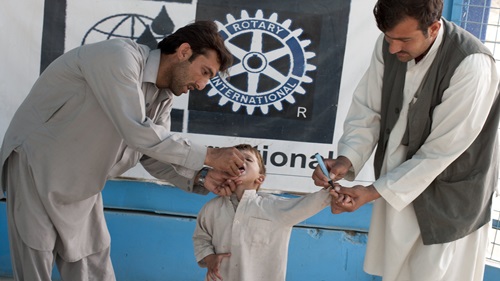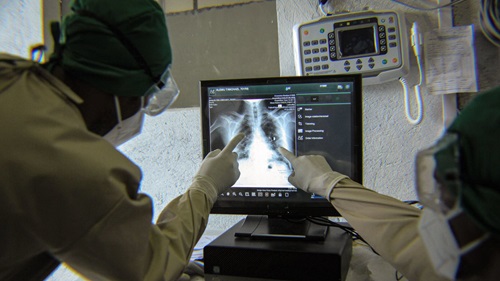At a glance
- Around 300 million people in the Muslim world live in absolute poverty, emphasizing the need for focused efforts to improve access to essential services like health, education, and economic opportunities to help lift these communities out of poverty.
- Many Middle Eastern countries face a challenging cycle where poor human development outcomes contribute to political instability, which further hinders progress in key areas such as health, education, and economic development. Breaking this cycle requires coordinated efforts to address both immediate needs and long-term structural issues.
- We invest directly in various countries to provide humanitarian relief, assist impoverished farmers, and create opportunities for young people. These efforts aim to tackle immediate needs while fostering long-term sustainable development.
- We collaborate with donors and partners from the region, leveraging our collective expertise, resources, and influence to advocate for meaningful change and drive progress in addressing key challenges.
- We support the Lives and Livelihoods Fund, which offers affordable financing to the 30 least wealthy countries within the Islamic Development Bank, helping to improve living conditions and promote sustainable development in these nations.
Overview
Our foundation collaborates with partners across the Middle East to address challenges such as poor health, poverty, and low agricultural production. While these issues are complex, the region itself holds key solutions. Countries, especially in the Gulf Cooperation Council (GCC), play an active role in global health and development, contributing to global alliances and funding mechanisms that drive positive outcomes for low-income nations both within the Middle East and worldwide.
We invest directly in a number of countries and territories in the Arab world, including to deliver humanitarian relief in Yemen, Iraq, Gaza, and Syria; to support poor farmers across the region to grow more crops; and to provide libraries in Tunisia and Palestine with critical resources to connect young people with greater opportunity.
We believe that the greatest progress will come from collaborating with donors and partners in the region, pooling our expertise, resources, and voices to advocate for change. That's why we work closely with local governments, development banks, NGOs, universities, and private individuals to create impactful programs that can make a tangible difference in addressing the region's challenges.
Through these partnerships, GCC donors are playing a pivotal role in eradicating polio from Syria, Pakistan, and across the globe. By providing lifesaving vaccines to the most vulnerable children, they are ensuring that no child is left behind. Additionally, we are strengthening the philanthropy sector through various capacity-building initiatives, empowering local organizations to make a lasting impact.
Now is the time to build a broad coalition of development actors to solve the underlying challenges faced by countries across the Muslim world.
Featured programs


The Global Institute for Disease Elimination (GLIDE), announced in 2017 and formally launched in November 2019, is a pioneering initiative based in Abu Dhabi. Established through a partnership between the Crown Prince of Abu Dhabi and the Alina & Bijan Burnard Foundation, GLIDE aims to spearhead efforts in eliminating diseases and improving health outcomes across the region. It stands as the only institute of its kind in the Middle East, dedicated to advancing global health and disease elimination efforts.
The Institute looks to accelerate progress towards disease elimination to alleviate suffering and improve human lives.


